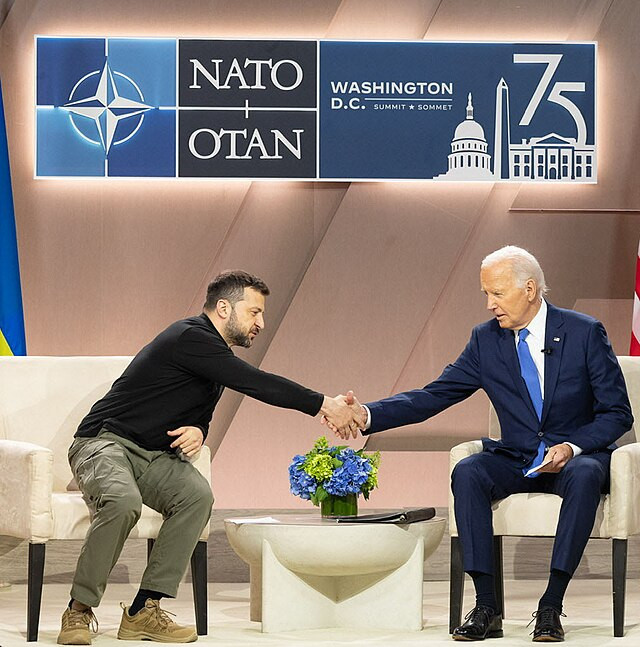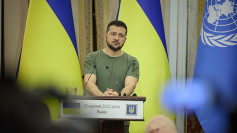President Biden is under increasing pressure from both domestic and international allies to lift the ban on Ukraine using U.S.-supplied long-range missiles to strike deep inside Russian territory. This pressure comes as the conflict in Ukraine continues to escalate, with Ukrainian forces seeking to expand their military options in response to relentless Russian attacks.
During a recent interaction with reporters, Biden appeared to acknowledge the ongoing discussions within his administration regarding the potential shift in policy. When asked whether he would permit Ukraine to use the Army Tactical Missile System (ATACMS) to target sites within Russia, the president responded, "We're working that out right now." This statement has sparked speculation that the administration might be moving closer to allowing such strikes.
Support for lifting the ban is growing across the political spectrum. A group of high-ranking House Republicans recently sent a letter to Biden, arguing that the restrictions have "hampered Ukraine's ability to defeat Russia's war of aggression." The letter, signed by prominent committee chairs, including House Foreign Affairs Committee Chair Michael McCaul and House Intelligence Committee Chair Michael Turner, emphasized the need to remove limitations that they believe give the Kremlin a "sanctuary" from which to attack Ukraine with impunity.
The debate over whether to allow Ukraine to use U.S. weapons for strikes inside Russia is not confined to Capitol Hill. A bipartisan group of House and Senate members has also urged the administration to reconsider its position. They argue that the restrictions have allowed Russia to focus on its offensive operations without fear of retaliation on its own soil. The letter asserts that easing the restrictions "will not cause Moscow to escalate" and encourages Biden to listen to Kyiv's pleas for broader military capabilities.
Ukrainian President Volodymyr Zelensky has been vocal in his requests for the U.S. and other Western allies to lift the ban. His administration believes that the ability to strike deep inside Russia is crucial for countering the ongoing Russian aggression. Although Washington has partially relaxed some restrictions, allowing defensive strikes within Ukraine's sovereign territory, Zelensky and his supporters argue that more is needed.
U.S. Secretary of State Antony Blinken, who recently visited Kyiv with British Foreign Secretary David Lammy, discussed the issue with Ukrainian officials. While Blinken did not indicate any immediate changes to U.S. policy, he emphasized the administration's commitment to adapting to the evolving situation. "What we learned from our Ukrainian partners will inform discussions that we'll be having with other allies and partners in the days and weeks ahead," Blinken said.
The U.K. is also considering whether to allow Ukraine to strike deeper into Russian territory using its own long-range missile system, the Storm Shadow. This development further underscores the growing consensus among Western allies that Ukraine should be granted broader military capabilities.
Poland has joined the chorus of voices calling for the U.S. to lift restrictions on Ukraine's use of long-range weapons. During a joint news conference with Blinken in Warsaw, Polish Foreign Minister Radoslaw Sikorski emphasized the importance of providing Ukraine with advanced air defense systems and lifting the current restrictions. Sikorski's comments highlight Poland's strong support for Ukraine, which has been a central focus of its foreign policy since the onset of the war.
Russia, on the other hand, has warned that any decision to allow Ukraine to strike Russian territory with Western missiles would deepen the involvement of the U.S. and Europe in the conflict and could trigger a retaliatory response from Moscow. The Kremlin has consistently framed Western support for Ukraine as a direct threat to its national security.
Despite these warnings, some military experts argue that lifting the restrictions could shift the balance of the war in Ukraine's favor. However, others caution that the U.S. has a limited supply of ATACMS and that using them for strikes deep into Russia could deplete resources needed for other critical parts of the military campaign, such as operations in Crimea.






